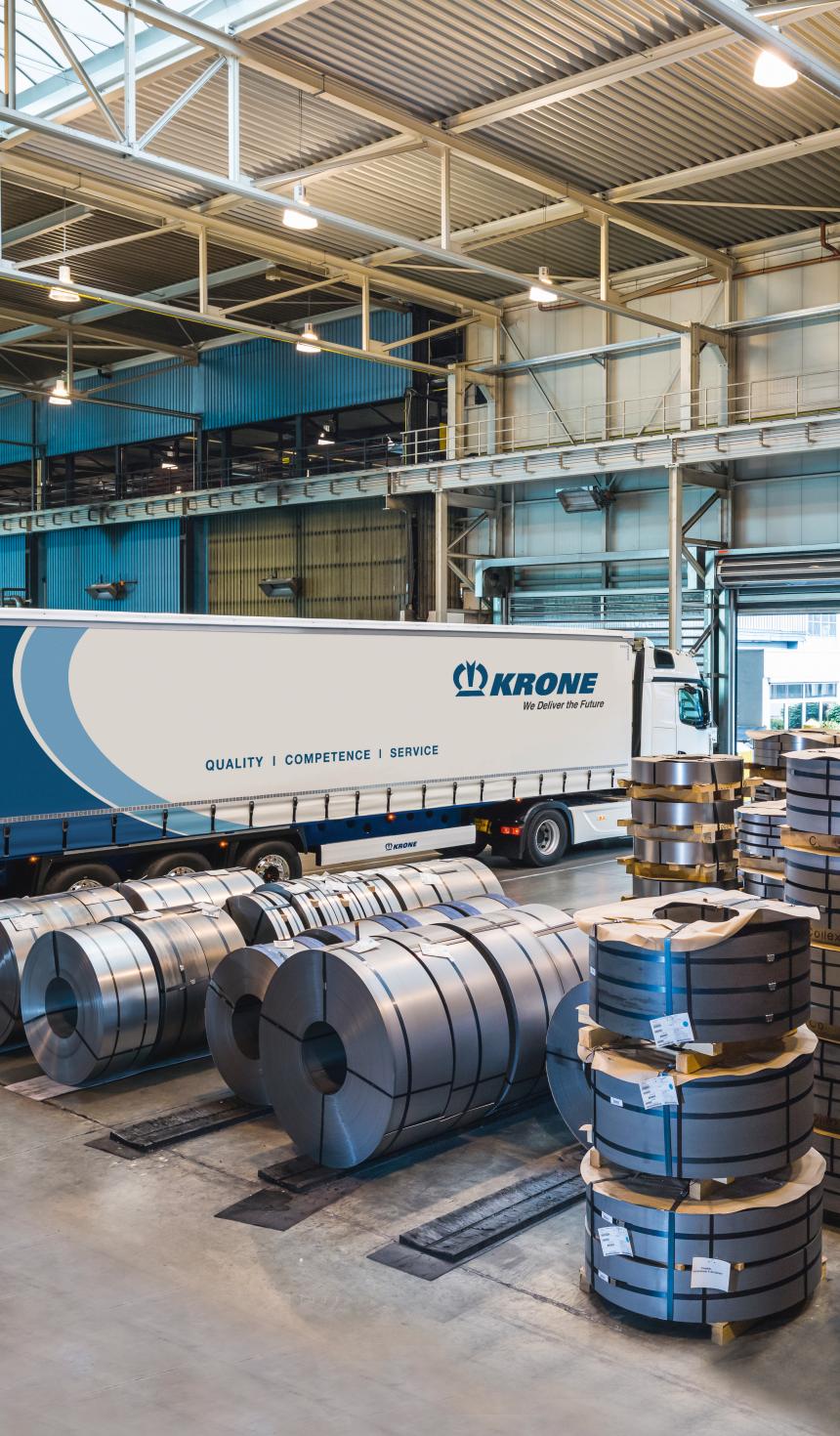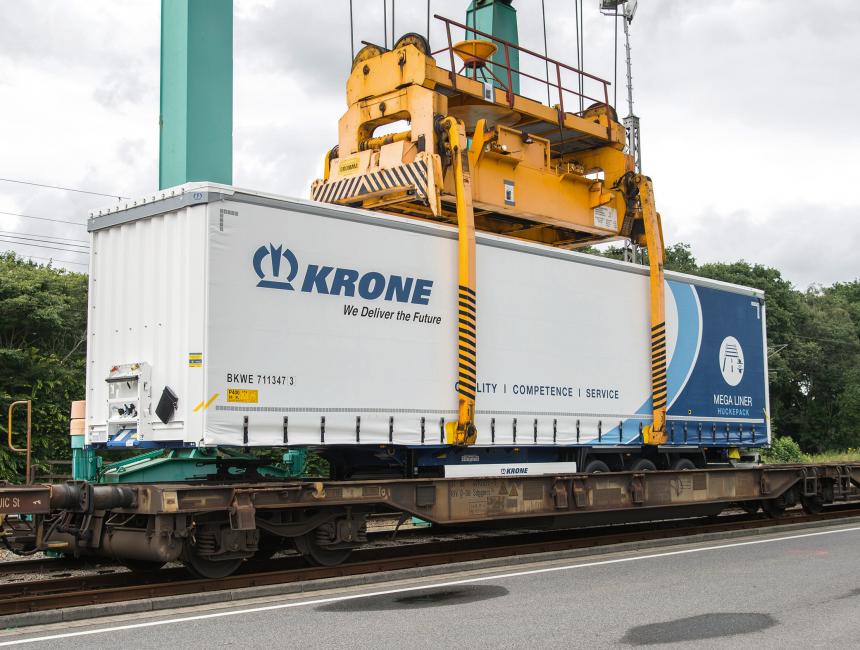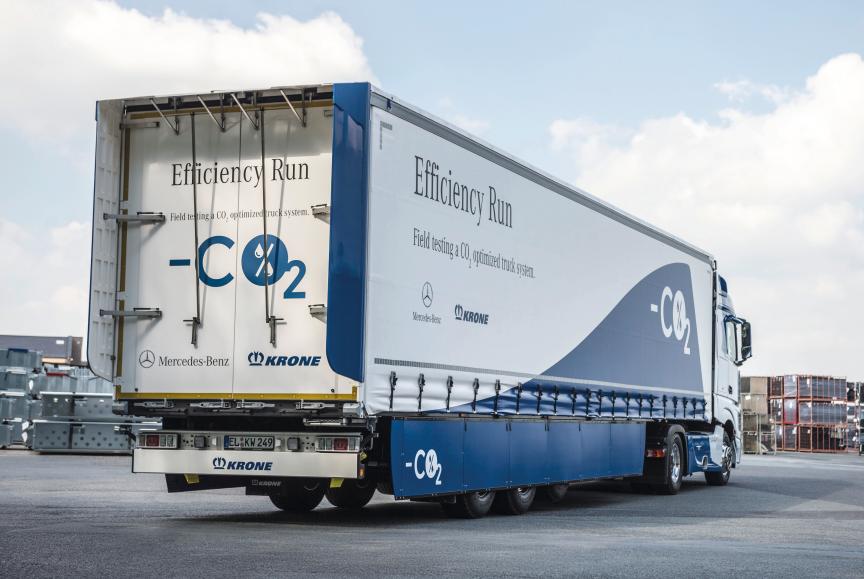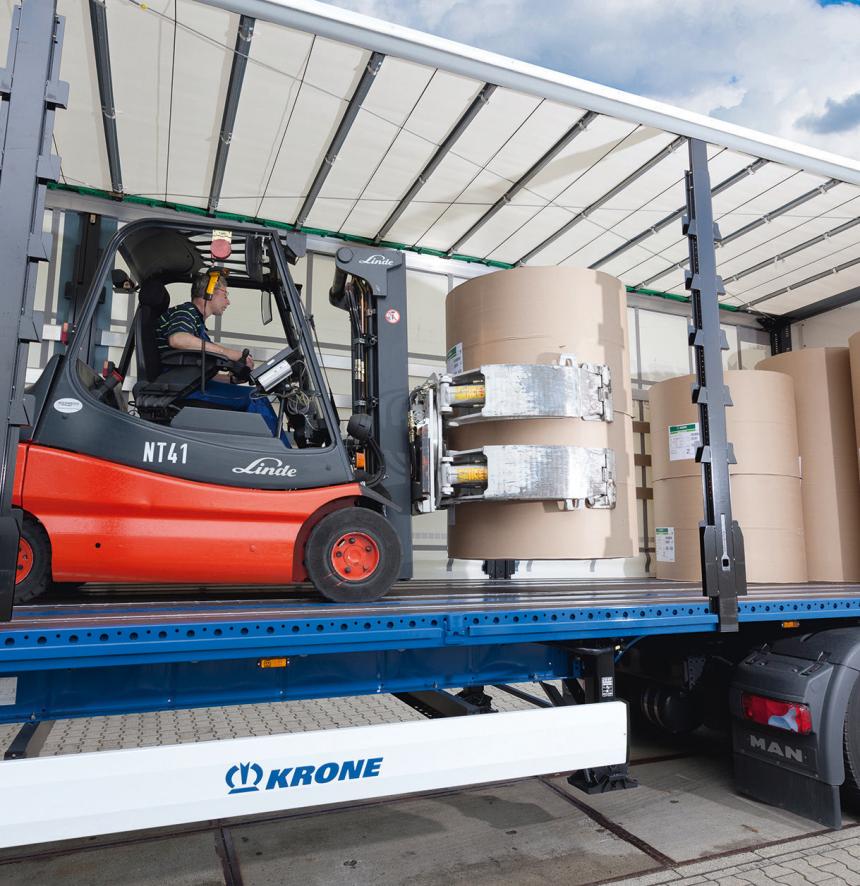
T
ractor unit, trailer, load – the traditional combination weighs in at up to 40 tonnes. It is propelled forward by around 500 HP, combatting wind, centrifugal forces and vibration. Logistics requires power: physically in terms of materials and technology, as well as entrepreneurially – hauliers and forwarders in this sector have to prove themselves every day in order to remain successful and give their customers the best possible service.Strong companies act rather than react. They are dynamic, live by their values, take responsibility and earn the trust of their customers – according to Hermann H. Wala, author of the book “Meine Marke: Was Unternehmen authentisch, unverwechselbar und langfristig erfolgreich macht” (“My brand: What makes companies authentic, distinctive and successful in the long term”), published by Redline. As a coach and marketing strategist, Wala advises companies that want to utilise their power correctly over the long term. He is convinced: “Strength is usually a matter for the boss. Companies are strong when they have strong leaders – managing directors that run their business with passion and enthusiasm.” They also need employees that convey the company’s values authentically and passionately to the outside world: “It reaches right down to the driver, who delivers the goods to the customer’s door. The impression that he leaves is long-lasting. Every one of these drivers is an ambassador for the company.”
MILESTONES FOR THE WHOLE SECTOR
Wala firmly believes that a company cannot draw its power from financial success: “It is much more important that a company has a good corporate culture, in which employees can reach their full potential and enjoy working.” This is something that can be felt at Krone: as a family firm that has been based in Emsland for more than 100 years, Krone Commercial Vehicle Group is firmly embedded in the region – just like many of its employees. “This strong foundation gives us the power to be very innovative,” adds Ingo Lübs, Head of Marketing at Krone.
Krone Cinema
Keep an eye on your goods on the go.
Check our media centre and find the latest videos from around the world of Krone.
Check our media centre:
http://bit.ly/2iBWriZ
Check our media centre and find the latest videos from around the world of Krone.
Check our media centre:
http://bit.ly/2iBWriZ
Throughout its history, the company has always set milestones for the entire sector – from the introduction of the long vehicle combination, to the first Mega Liner, to the Coil Liner for safe transport of steel coils. Krone was the world’s first trailer manufacturer and laid the groundwork for a load security system with the Multi Safe System, which has won multiple international awards. “The majority of our innovations have been brought about by employees and customers,” says Ingo Lübs. “It may come from someone working in assembly, or the chief technical officer. Each Individual’s identification with the company is remarkable, and everyone wants to come along on our journey to success.”
COLLECTIVE INTELLIGENCE
Dr. Stephan Rammler is convinced that it is only through the power of the collective, and its intelligence, that success can continue to be ensured in future. The Founding Director of the Institute for Transportation Design (ITD) and Professor of Transportation Design & Social Sciences at Braunschweig University of Art says: “The major challenges of the 21st century can only be overcome by working with others.” He explains that it is important for hierarchical systems to be detached from decentralised concepts, based on flat hierarchies.
“We Brands” is Hermann H. Wala’s name for companies that function through community – internally, but also with customers, which have transformed from consumers to partners on an equal footing. “We Brands have an emotional connection with their customers,” says Wala. A recipe for success that is easy for even small companies to implement: “They have to formulate values that they want to live by, and each and every employee must convey these values to the outside.” Details, such as an especially friendly telephone manner or little extra services, grab attention and stick in people’s minds. “It is a key benefit alongside an outstanding product, and a visible sign of entrepreneurial strength.”
THE MUSCLE MEN: PIGGYBACK TRAILERS
Krone’s piggyback trailers are an example of real physical strength. Whilst trailers for road transport are designed for loads up to a speed of 85 kilometres per hour, the piggyback trailers, which are placed on railway waggons, must be able to withstand up to 140 kilometres per hour. “When the entire trailer is lifted onto the waggon by crane and the crane hook is dangling in the air, enormous flexural forces are exerted on the chassis,” explains Harald Schäfer from Krone product management. With this in mind, the material underwent special reinforcement: in testing, it had to withstand a load of 50 tonnes.
»INDIVIDUALS’ identification with the company is remarkable.«
Ingo Lübs, Head of Marketing
In addition, Krone made the front walls stronger and used thicker curtains weighing 850 grams per square metre – 500 grams per square metre is sufficient on the road. The curtains must be sufficiently robust so as not to give way under abnormal peaks in pressure, which, for example, occur when two trains meet in a tunnel at high speeds. When new products are developed, the strain that they are expected to be subjected to is simulated in a computer program. The values obtained are fed into the design. These are theoretical values, the validity of which is then tested on the road. “We use prototypes to drive several thousand figures of eight on our grounds,” says Schäfer.
On the road – assuming a payload of 27 tonnes – the front wall of a trailer has to withstand 13.5 tonnes of weight, with the side walls being subjected to just under eleven tonnes each, according to Code XL, which certifies the necessary strength for load securing. “Optimum load securing is extremely important,” says Schäfer. “For example, there are considerable centrifugal forces at work when the truck goes round a bend. If the load securing permits too much movement, the curtain can be damaged – a major safety and security risk.” Fahrzeugwerk Krone’s chassis are welded. This makes them flexible, as well as highly resilient. “Welding means sound and smooth transport: the trailer runs very quietly behind the tractor unit,” says Schäfer.
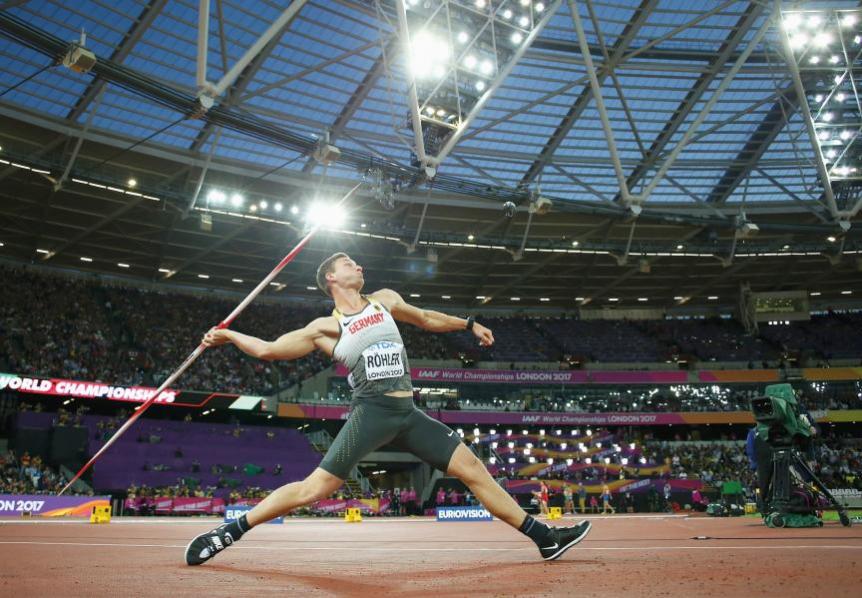
LEARNING FROM TOP-LEVEL SPORT
Withstanding the greatest strain, continually building up power and utilising it efficiently: these are all areas in which logistics can learn from professional sport. On 20 August 2016, Thomas Röhler threw his javelin 90.30 metres, winning the gold medal at the Olympic Games in Rio de Janeiro. The professional athlete uses his body’s strength to achieve top performance. “For me, power is the basis for explosive speed. It is what determines success in my discipline,” says Röhler. As he throws, his left foot is subjected to a load of around a tonne, even though the javelin itself only weighs 800 grams. However, it is a good 2.70 metres long. Getting this tool to accelerate requires an enormous amount of thrust from the entire body. “80 per cent of this energy comes from the lower body,” explains the athlete. “For us, the arm is more or less just there to guide the direction.” As would be expected, his training is diverse: Röhler does general fitness training, with power generally taking precedence over stamina. Added to this are the technical components. “In order to do well in a competition, everything has to come together: I must be in the right place mentally, my physical power must be on point, and I must have access to the best material,” says Röhler. Just like in logistics: there too, the best performance can only be achieved when man and technology work together in harmony.
The energy that is required must be used with care – something that logisticians are all too aware of. Efficiency is also important for Thomas Röhler, particularly when it comes to the throwing movement. “Javelin throwing is like a giant vector calculus,” he explains. “I have to get all of my energy into the tip of the javelin. Anything that isn’t concentrated there is wasted.” This concept even applies to training: “Only if I train efficiently am I using my time sensibly. Only then am I able to put time into injury prevention and therefore invest in my health.” It is important that he has a carefully tailored training plan that takes account of both short-term and long-term goals and is truly sustainable: “I could train in such a way that I would be able to throw two metres further this year, but that would be too risky for my health.”
The energy that is required must be used with care – something that logisticians are all too aware of. Efficiency is also important for Thomas Röhler, particularly when it comes to the throwing movement. “Javelin throwing is like a giant vector calculus,” he explains. “I have to get all of my energy into the tip of the javelin. Anything that isn’t concentrated there is wasted.” This concept even applies to training: “Only if I train efficiently am I using my time sensibly. Only then am I able to put time into injury prevention and therefore invest in my health.” It is important that he has a carefully tailored training plan that takes account of both short-term and long-term goals and is truly sustainable: “I could train in such a way that I would be able to throw two metres further this year, but that would be too risky for my health.”
BEING A “WE BRAND”: THE ROUTE TO SUCCESS
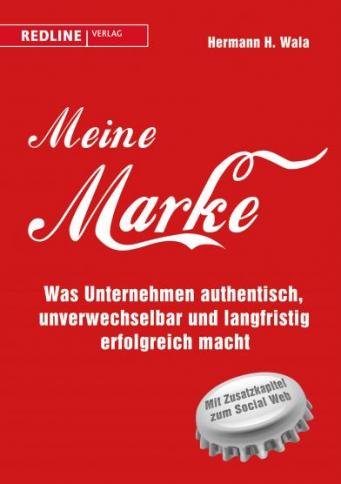
In his book “Meine Marke – Was Unternehmen authentisch, unverwechselbar und langfristig erfolgreich macht” (“My brand: What makes companies authentic, distinctive and successful in the long term”) Redline publishing house, marketing strategist Hermann H. Wala analyses the success strategies of well-known brands such as Apple and Google, and sets out seven exciting approaches for other companies. At the heart of the book is the construct of “We Brands”, which create a special emotional connection between man, brand and medium, as well as securing themselves a unique position, standing clearly for their values and dealing with customers’ needs in a genuine manner. The author was responsible for group marketing at Hubert Burda Media and worked for leading advertising agencies before going freelance with his own consultancy firm Wala Strategy & Brand Consultants.
“A HEALTHY LEVEL OF CRAZINESS”
However, ultimately, some risk is required: “Anyone that wants to stay ahead in top sport has to be able to rely on their training, as well as taking risks. Those that dare to go a little further always have an advantage. However, it is important that everything is organised and technically co trolled,” says Röhler. “Nothing can happen without years of continual hard work. You need patience, particularly on the road from young athlete to ambitious professional sportsperson.” After all, it doesn’t always all go right straightaway. Röhler believes that you need a healthy level of craziness, combined with creativity to come up with ideas that others might not have. “And you need a competent, reliable and strong team.”
This team must be well managed. According to Hermann H. Wala, We Brands live by the power of courageous managers, who take action and continually drive the brand forward. You need “a management team that is ‘obsessed’ with the idea of what customers need today and will need tomorrow”. The customer knows what these companies stand for – and appreciates them for it. Wala has developed seven tools that companies can use to put themselves in a strong position. For example, he advises focusing on authenticity, trust and dynamism. “Lively, ambitious, hard-working and employee-friendly companies are those that have the best chance of long-term success,” says Wala. “Only if we engage in vigorous debate, reflect seriously and take responsibility for our actions can we measure up to the high standards that modern markets and target audiences measure us against. Only then will these companies be and remain strong.”
This team must be well managed. According to Hermann H. Wala, We Brands live by the power of courageous managers, who take action and continually drive the brand forward. You need “a management team that is ‘obsessed’ with the idea of what customers need today and will need tomorrow”. The customer knows what these companies stand for – and appreciates them for it. Wala has developed seven tools that companies can use to put themselves in a strong position. For example, he advises focusing on authenticity, trust and dynamism. “Lively, ambitious, hard-working and employee-friendly companies are those that have the best chance of long-term success,” says Wala. “Only if we engage in vigorous debate, reflect seriously and take responsibility for our actions can we measure up to the high standards that modern markets and target audiences measure us against. Only then will these companies be and remain strong.”
Photos: Krone, Team JenJavelin, Michael Steele/Getty Images, Redline





